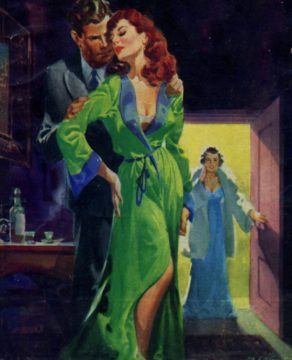Agnes Callard in The Point:
 Tolstoy was a moralist. He wrote one novel—Anna Karenina—in which infidelity ends in death, and another—War and Peace—in which his characters endure a thousand pages of political, military and romantic turmoil so as to eventually earn the reward of domestic marital bliss. In the epilogue to War and Peace we encounter his protagonist Natasha, unrecognizably transformed. Throughout the main novel, we had known her as temperamental, beautiful and reflective; as independent, occasionally to the point of selfishness; as readily overwhelmed by ill-fated romantic passions.
Tolstoy was a moralist. He wrote one novel—Anna Karenina—in which infidelity ends in death, and another—War and Peace—in which his characters endure a thousand pages of political, military and romantic turmoil so as to eventually earn the reward of domestic marital bliss. In the epilogue to War and Peace we encounter his protagonist Natasha, unrecognizably transformed. Throughout the main novel, we had known her as temperamental, beautiful and reflective; as independent, occasionally to the point of selfishness; as readily overwhelmed by ill-fated romantic passions.
Marriage and motherhood turn out to sap Natasha’s interest in music, in parties, in dance, in her appearance; in fact they seem to sap her interest in having interests of her own. In her new life, she self-consciously and gladly subordinates her mind to her husband’s, and finds the fulfillment of her domestic duties both thoroughly rewarding and utterly absorbing. All of this makes her, in Tolstoyan ethics, “an exemplary wife and mother.”
There is only one moment in the epilogue in which we catch a glimpse of the old Natasha.
More here.
